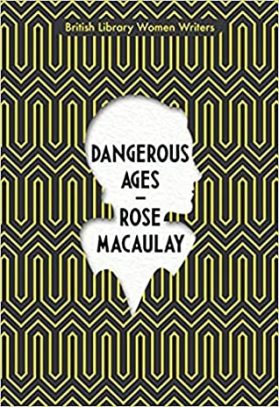I bought Family Skeletons (1986) in 2011, shortly after seeing Henrietta Garnett give a talk about her life at a bookshop in Oxford. It was a fun evening, not just because her life is interesting but because she was quite clearly several drinks past sober throughout. My main memory is that she continually took glasses off and put them back on, holding the notes from which she was reading at great distances each time. It was a continue whirl of outstretched arm and the other spiralling her glasses on and off.
Anyway, it interested me enough that I wanted to read her novel. And I was interested before any of this happens, because she is from a literary an artistic dynasty – being the daughter of David Garnett and the granddaughter of Vanessa Bell. With such heritage, one could hardly avoid writing a book. Despite the title of this one, it is not a roman à clef.
Catherine is the heroine in this one – a young and naive woman, just turned adult, who has lived a sheltered life in a beautiful Irish estate called Malabay. Only her eccentric uncle Pake lives with her, excepting some staff. He has given her a love of literature and nature, but doesn’t like her to travel far from Malabay and admits few visitors.
Tara – a man; have men ever been called this? – is allowed in as a cousin, but these family ties don’t stop Tara and Catherine falling in love, against Pake’s better judgement. He is older and less innocent than Catherine, and he is amused by her total lack of understanding of the world. It is a passionate and unwise relationship, and one that Garnett describes with sort of language and images you can easily imagine a Bloomsbury Group member using.
Once, she woke during the night, frightened by the half-forgotten image of a dream already scudding out of her head. She had been transformed into a hare and was being pursued by dogs. The dogs were not far behind her and she could smell their dreadful hot breath. Her soul was still her own, but the dogs were hunting her. When she woke, she found that Tara was kissing her and stroking the nape of her neck.
“What is it, Catherine? You twitch in your sleep like a frightened animal.”
“I was an animal in my sleep and I was frightened.”
She kissed him.
They made love again and fell asleep in one another’s arms.
Their relationship does reveal some family skeletons – but there is also the unsettling tension between Malabay and the locals, and in Ireland of the 1980s you can probably imagine what the undercurrent of those tensions is.
Overall, I was impressed by Garnett’s writing. This wasn’t published just because of her family connections. A lot of the novel is in dialogue, and she is good at the emotions that hover below the surface and come through awkwardly – even if her characters are perhaps more willing to discuss their feelings than most Brits would be.
It’s often quite bitingly witty too, particularly when Pake is being scathing, or when his ex-wife Poppy turns up. You do feel for Catherine, a little boat on the sea of all this wit, intelligence, and experience – having to learn how to craft her own personality against a backdrop of so many powerful personalities.
It’s certainly a very evocative novel, and the plotting includes some big events and revelations without losing the sense that we are in a deeply real world. Somehow it doesn’t feel of the 1980s, though some of the plot is inextricable from it – take that away, and it could easily be the 1930s. Perhaps that is the ethereal timelessness Garnett brings to the narrative.
What a talented family. She died just over a year ago, and this was her only novel. A shame – I would certainly have been intrigued to see what came next.








 I intend to write about each of the British Library Women Writers titles as they come out, though I’m already a bit behind because the brilliant Father by Elizabeth von Arnim is also out now!
I intend to write about each of the British Library Women Writers titles as they come out, though I’m already a bit behind because the brilliant Father by Elizabeth von Arnim is also out now!
